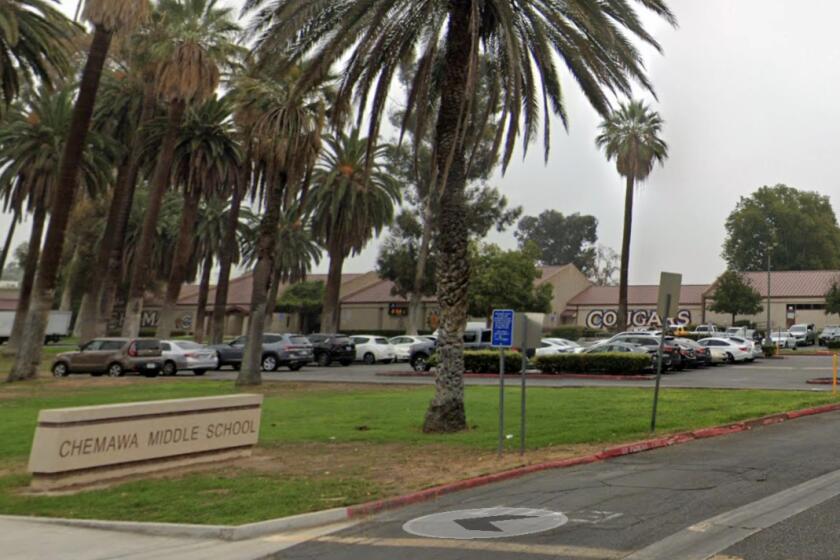Ed Boards Could Use Some Wal-Mart Smarts
What happens when you drop a director of strategic planning for a technology and media company into the Oakland public school system’s finance department?
Culture shock.
And that sort of mind-shuddering jolt has its benefits, say the leaders of the Broad Education Foundation in Los Angeles. Which is why, in the last couple of years, they’ve tossed more than two dozen young men and women with MBAs, JDs and MPPs (masters in public policy) and at least four years of professional work experience in the private or nonprofit sector into urban school districts for two-year residencies.
These districts, heaven knows, need help. But you wouldn’t know it from their attitude. Many of the worst turn up their noses at professionals unless they first jump through the hoops of getting a teaching credential -- credible promises of management salvation be darned
A Broad residency, on the other hand, is like a secret side entrance into the shocking subculture of education bureaucracy.
Michelle Boyers, who had worked as a private equity associate and attended Harvard Business School before joining the Boston Public Schools’ human resources department, says she has been most surprised by the “resistance to change” at all levels of the school system. Boston schools, for example, do all hiring on paper -- candidates must submit three copies of a 1-inch thick application. Teachers who apply in January often don’t know if they’re hired until August. Putting the system online would snare good candidates who are now drifting to other districts. This no-brainer fix would have taken about two months in the private sector, she estimates. She figures it will take the district from nine to 12 months.
Barak Ben-Gal, the aforementioned planning director, is now the acting executive officer for financial services in the Oakland schools. He saw no point in getting a teaching credential to get the position. “Being in a classroom doesn’t prepare you to do payroll, fiscal controls and compliant use of funds,” he said. His Stanford business school degree did, he says. But not for other matters he encountered.
“In the private sector,” he said, “I was used to a system where if you have an employee you think is doing a good job, you can provide them with additional compensation. If someone is not doing a good job, you can terminate them.” With the teachers union calling the shots, “it basically comes down to seniority.”
Other residents told me stories of antiquated accounting systems, personnel without the most basic training in word-processing programs, enormous bureaucracies with no clear statement of how people get promoted from one position to another. They are often overwhelmed by the amount of regulation that stands in the way of fixing problems and surprised that every move seems to have political implications.
They also say they have noticed a set of strange assumptions impeding these school systems’ success. Vincent Harris, who worked as a senior finance manager at Kraft Foods and is now helping the St. Louis school system with its finances, says that in the private sector “you have shareholders you’re accountable to.” But people in the school system see public education as “a social good ... they may or may not care that something will cost $5,000 per student versus $10,000 per student.”
That, for many fellows, is the biggest shock: that public school systems pretend they don’t have to operate like other companies and organizations, that they can get the best people without giving them incentives, that their funding comes from heaven, that being a public employee charged with doing nice things for children means never having to answer to shareholders -- in this case, taxpayers.
By paying the Broad residents a salary starting at $80,000, the foundation is acknowledging that talented people have the option to follow the free market elsewhere. But foundation leaders say that after the first two years, most residents -- now it’s me who’s shocked -- plan to stay in public education. Hearing the frustration and exhaustion in the residents’ voices makes me worry that some will eventually bail or -- worse -- develop a form of Stockholm syndrome, lowering their expectations to meet their environment and concluding that public school systems have nothing to learn from the private sector.
For now, though, the Broad residents can remind the school systems that if they continue to turn out generations of substandard product, customers may begin to assign blame -- and even demand refunds.
More to Read
Inside the business of entertainment
The Wide Shot brings you news, analysis and insights on everything from streaming wars to production — and what it all means for the future.
You may occasionally receive promotional content from the Los Angeles Times.










